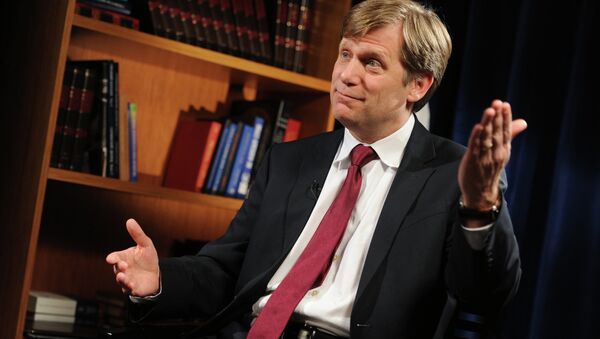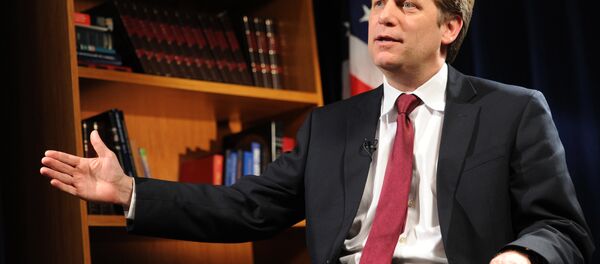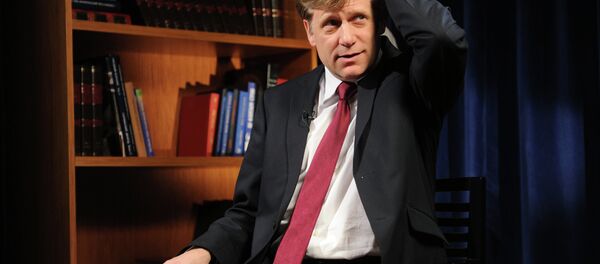In his latest attack, McFaul, who has become a minor media celebrity for his anti-Russian hysteria this past election season, suggested that US lawmakers should look into the possibility of depriving Russian journalists of media accreditation, effectively restricting their activity, currently protected by free speech laws under the First Amendment of the US Constitution.
In a Saturday op-ed for the Washington Post, the diplomat reiterated the already-debunked claim that the Russian media had "campaigned openly" for Donald Trump during the election. McFaul suggested that US lawmakers should try to come up with a way to regulate "in-kind support" by the media for candidates in the same way that foreign governments are prohibited from making financial contributions to campaigns.
"Should Sputnik and RT employees be accredited as journalists or as foreign agents under the Foreign Agents Registration Act?" the diplomat asked, sheepishly adding "I don't know. But we need to know."
He did not offer any concrete evidence supporting his theory that the Russian media was in it for Trump, deliberately ignoring numerous stories published in Sputnik and airing on RT during the election with a Trump-neutral or even anti-Trump slant, except to cite the fact that Sputnik apparently once "tweeted the hashtag #CrookedHillary."
McFaul went further, suggesting that "Russian and other foreign actors" have collaborated to create fake news, noting that what had emerged as a result was "a new 'Illiberal International' to replace the old Communist International." Back-peddling on the idea that he was effectively calling for a new McCarthyite witch-hunt, McFaul wrote his suggestions in the form of questions, instead of declarative statements. "What was the full scope of these activities? Did any of these actions influence the election outcome? I don't know, but we need to know," he said.
On Sunday, responding to the former ambassador's remarks, Sputnik and RT Editor-in-Chief Margarita Simonyan suggested that McFaul was simply looking for revenge for the Russian media's frequent but fair criticism of him.
"I think McFaul feels offended by our frequent and fair criticism of him," Simonyan said, as quoted by RT. The criticisms are legitimate, she said, because "we know few people who, while being tasked with building bridges between other countries, have contributed so much to tearing them down."
Accusing McFaul of "fanning anti-Russia hysteria" before, during and after his term as ambassador, Simonyan noted that his latest outburst was a sign that "as you can see, he continues to do so."
Simonyan suggested that if McFaul was a true diplomat, he would keep in mind that "in diplomacy, everything is based on the principle of reciprocity." Accordingly, she added, if the US government tries to interfere in the work of the Russian media, Moscow can take similar measures in response.
Ultimately, Simonyan noted that it was difficult to predict whether US authorities would heed McFaul's advice and try to suppress Russian media. "I really hope not, and that these statements will remain the amusing fantasies of a resentful person," she concluded.



